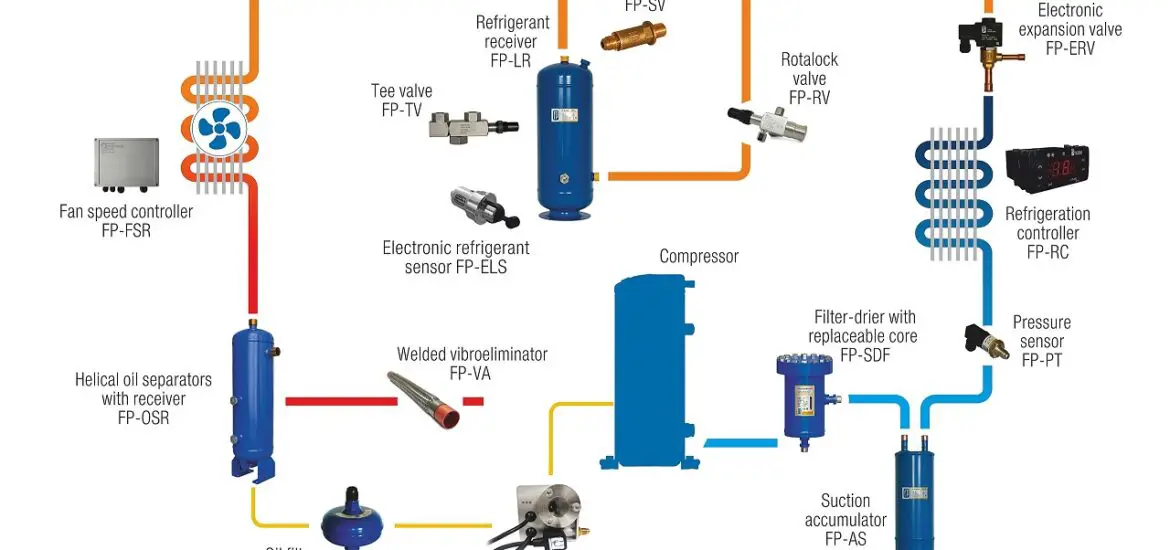Absorption fridge vs compressor – the great refrigerator debate rages on. But which one is the real winner? In this article, we’ll explore the history, principles, and differences of these two cooling systems, helping you make an informed decision for your home.

Table of Contents
History of Refrigeration: A Brief Look Back
Did you know that refrigeration has been around since ancient times? But it wasn’t until the 19th century that inventors like Jacob Perkins and Carl von Linde revolutionized the industry with absorption and compressor refrigerators. So, we have these brilliant minds to thank for our modern-day food storage solutions!
Basics of Absorption and Compressor Refrigeration: The Heart of the Matter
At their core, both absorption and compressor refrigerators aim to achieve one thing: cooling. They use different processes to get there, though. Let’s explore these systems a bit more, shall we?
Absorption Fridge vs Compressor: Key Differences
Operating Principles: What Sets Them Apart?
The main differences between absorption and compressor fridges lie in their operating principles. But what exactly does that mean? Let’s dig a bit deeper and find out.
Absorption Fridge: A Silent Operator
With an absorption fridge, the cooling process involves evaporation, absorption, desorption, and condensation. Instead of using an electric motor, it relies on a heat source to drive the cycle. Pretty neat, huh?
Compressor Fridge: The Powerhouse
A compressor fridge, on the other hand, uses a vapor-compression cycle, which includes evaporation, compression, condensation, and expansion. An electric motor compresses the refrigerant gas, making this type of fridge a true cooling workhorse.
Efficiency and Energy Consumption: Who’s the Greenest of Them All?
Absorption Refrigerator vs Compressor Efficiency: The Battle for Power
When it comes to energy efficiency, the compressor fridge takes the cake. However, absorption fridges aren’t far behind, and there are factors that can affect the efficiency of both systems. So, don’t count out absorption fridges just yet!
Environmental Impact: The Earth Matters
With climate change being a pressing concern, we must consider the environmental impact of both systems. While compressor fridges generally have a higher energy consumption, the impact depends on the energy source used. So, choose wisely for the sake of our planet!
Cost and Maintenance: The Price of Cool
Initial Cost and Installation: What’s the Damage?
When comparing initial costs, absorption fridges tend to be more expensive. But don’t let that deter you – there are factors that can influence the cost of each system, like size, brand, and features. So, weigh your options carefully!
Maintenance and Repairs: What’s the Lifespan?
Both absorption and compressor fridges have their own set of maintenance requirements, and the costs for repairs and replacement parts can vary. It’s crucial to understand the upkeep for each system, so you’re prepared for any surprises down the line. After all, who wants to deal with a fridge meltdown during a heatwave?
Read our other articles on absorption refrigeration – Absorption Refrigeration: Easy Guide to Understanding It
Pros and Cons of Absorption and Compressor Fridges: The Showdown
Advantages of Absorption Fridges: The Quiet Champions
Absorption fridges have their perks, like quiet operation, flexibility in energy sources, and suitability for off-grid and remote locations. Plus, they often have a lower environmental impact, depending on the energy source used. Sounds like a winner, right?
Disadvantages of Absorption Fridges: The Downsides
But let’s be fair, absorption fridges have their drawbacks too. They’re less efficient than compressor fridges, have limited cooling capacity, slower temperature recovery, and a higher initial cost. So, are they still worth considering? That’s up to you!
Advantages of Compressor Fridges: The Mighty Machines
Compressor fridges boast higher energy efficiency, better temperature control and stability, faster cooling and temperature recovery, and a wider range of sizes and capacities. Impressive, right? But are they the perfect choice?
Disadvantages of Compressor Fridges: The Achilles Heel
Despite their strengths, compressor fridges have some drawbacks too. They’re noisier, require a continuous supply of electricity, and can have a higher environmental impact, depending on the energy source. So, think twice before jumping on the compressor bandwagon!
Conclusion: Which Refrigerator is Right for You?
Factors to Consider: The Decision-Making Process
When deciding between an absorption fridge vs compressor, you’ll need to consider your specific needs and priorities, like energy efficiency, noise, and cost. Also, think about your location, available energy sources, and environmental impact. It’s not a one-size-fits-all solution, after all!
Final Recommendations: The Verdict
In conclusion, the best choice will depend on your unique situation and priorities. We encourage you to carefully weigh the pros and cons before making a decision. Remember, the perfect fridge for you is out there – it just takes a bit of research and reflection!